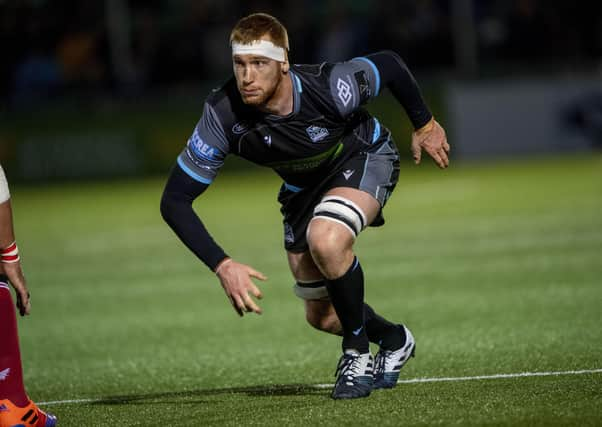Allan Massie: Six Nations without visiting fans is too dismal to consider


While this is a light in the prevailing darkness it is still only a faint one. New Zealand dealt with the outbreak of Covid-19 quickly and, it seems, efficiently. Moreover, while New Zealand isn’t isolated, it also isn’t an international hub like Britain or indeed Ireland. So there are far fewer transients, possibly carrying and spreading the virus.
Given its nature, rugby is a sport in which it is impossible to do much to limit physical contact without making a nonsense of the game. World Rugby’s very modest proposals of ways of restricting or reducing such contact demonstrate the near impossibility of effective limitation. This being so it seems certain that rugby will be one of the last sports to return.
Advertisement
Hide AdAdvertisement
Hide AdThe professional game may get back first. It involves comparatively few people. Some degree of isolation from casual contact with others (besides players’ families) may be possible. Professional clubs are likely to have the facilities to provide for regular testing and tracing. None of this is the case with the amateur game, and it is of course the amateur game which concerns most people actively engaged in rugby.So we may have to wait quite a long time before amateur club rugby is given a nod of approval. And the same applies, I would think, to schools rugby, even when the schools are open again.
Everything will of course depend, first on a continuing fall in the number of recorded cases of Covid-19, second on the avoidance of the threatened second wave of the virus, and third, eventually, on the production of an effective vaccine and its availability on a huge scale.
Yet it seems quite likely that travel and assemblies will still be discouraged, even forbidden, in the autumn when the rugby season should be underway, and that such amateur rugby as may be possible will be restricted to local friendlies rather than league matches – even if such friendlies are often more fiercely contested than matches against more distant clubs.
It is too soon to estimate the chances of next spring’s Six Nations. All one can say now is that while some professional rugby “behind closed doors” may just be acceptable, the prospect of the Six Nations without large numbers of visiting fans and all the sociability associated with the tournament is too dismal to consider.
Still, clubs are preparing as they must for the new season, and my inbox receives hand-outs almost every day about new signings, departures and retirements, some of the last surprising and, one would think, premature –Tim Swinson’s for example, for one would have thought he had at least a couple more seasons in him.
Among the Press notices it was good to hear of Rob Harley’s selection as Glasgow’s Player of the Season which was accompanied by a terrific encomium from the club’s departing coach, Dave Rennie. Not a surprising one, for Harley in his commitment, intelligence and fiery spiritedness has all the virtues traditionally – and rightly – associated with New Zealand forward play.
If, despite having won more than 20 Scottish caps, often, admittedly, as a replacement, he may never quite have established himself in the Scotland team as he seemed likely to do when he first played in 2012, scoring a try against Samoa in Apia within a few minutes of coming on to the field in his debut match.
Perhaps he has suffered from his versatility and willingness to play where asked, either as a lock, or in the back row. But he has, like Alastair Kellock, been a more valuable member of the Glasgow team than some who have won more Scottish caps. There have always been players more highly regarded by their team-mates than by national selectors, and Harley has at least been better treated than Edinburgh’s Roddy Grant who was not capped even once by Scotland.
Advertisement
Hide AdAdvertisement
Hide AdIn some ways Harley’s career recalls great clubmen of the amateur days, such as Kelso’s Eric Paxton and Melrose’s Robbie Brown, whose complete commitment made them favourites of their home supporters. Every club would like to have players like these two, and indeed like Roddy Grant and Rob Harley. Happily Harley’s career is not over and may not be over for some time. Glasgow, with a new coach and in a period of transition, are going to need him, one would think, for some time yet. Indeed, given that his 30th birthday is only a couple of weeks behind him, he may still have his best years before him.
Comments
Want to join the conversation? Please or to comment on this article.